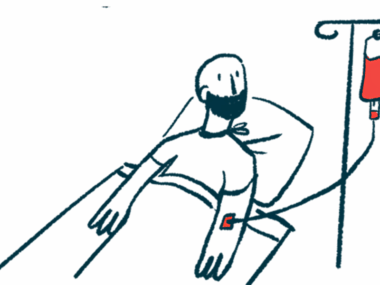Ultomiris Under Priority FDA Review as Potential gMG Treatment
Written by |

The U.S. Food and Drug Administration (FDA) has accepted and placed on priority review an application seeking the approval of Ultomiris (ravulizumab-cwvz) to treat adults with generalized myasthenia gravis (gMG).
The FDA set April through June as a target date range for its decision.
Ultomiris is a monoclonal antibody that is designed to block the activation of the complement cascade, a part of the immune system thought to drive gMG.
Developed by Alexion Pharmaceuticals, now part of AstraZeneca, it is the company’s second complement antibody. Soliris (eculizumab), the first, is approved to treat gMG in adults who are anti-acetylcholine receptor (AChR) antibody positive in the U.S., Europe, and Japan.
“Soliris was the first new treatment approved for this devastating disease in approximately 60 years, and this filing for Ultomiris demonstrates Alexion’s continued commitment to improve outcomes for patients living with gMG,” Marc Dunoyer, Alexion’s CEO, said in a press release.
The application is supported by data from the Phase 3 CHAMPION MG (NCT03920293) trial, which evaluated the safety and efficacy of Ultomiris against a placebo in 175 adults with gMG and no previously complement inhibitor treatment.
Patients were randomly assigned to Ultomiris or a placebo for 26 weeks (about six months). Those who completed this randomized trial phase could join its ongoing and open-label extension study, and either continue or start receiving Ultomiris for up to two years.
CHAMPION MG’s main goal was changes in the MG Activities of Daily Living (MG-ADL), a validated patient-reported measure of MG severity, from the study’s start through week 26.
All enrolled patients were positive for antibodies targeting the acetylcholine receptor, the most common cause of MG, and their mean MG-ADL total score was 9 (range 6–24) at the study’s start, a baseline measure. Most were white (73%), with an average age of 55.6, and about half were female.
Ultomiris was administered by infusion into the bloodstream every eight weeks after an initial loading dose in the trial. Soliris, in contrast, is given as an every two week infusion after an initial loading dose, and its FDA label carries a black box warning of a risk for potentially life-threatening meningococcal bacterial infection.
The trial met its primary goal, with results showing that Ultomiris-treated patients had a statistically significant drop in MG-ADL scores — by an average of 3.1 points — compared with those on placebo, whose scores dropped by an average of 1.4 points at 26 weeks. Treatment benefits, as reflected on MG-ADL scores, were seen as soon as one week after treatment initiation.
The Quantitative Myasthenia Gravis (QMG) score, a clinician-reported measure of disease severity, also confirmed the benefits of Ultomiris, with three times as many patients experiencing a decrease of at least five points in the QMG score, indicative of marked improvements.
“The Phase III trial shows that Ultomiris may help a broader range of patients including those with milder symptoms or who are earlier in their treatment journey,” Dunoyer said.
Benefits have been sustained for up to 52 weeks in patients from the main trial who finished 26 weeks of treatment in its extension study, and no cases of meningococcal infection have been observed throughout this extended time, Alexion reported.
Measures to assess fatigue and health-related quality of life generally showed trends in favor of Ultomiris over a placebo, but these differences were not statistically significant.
Safety data were consistent those of Phase 3 studies into Ultomiris in other disorders, with the most common side effects being headache, diarrhea, and nausea. Serious adverse events were reported in two patients on Ultomiris and four on placebo, and two patients on Ultomiris died during the trial — one due to COVID-19 and the other after a cerebral hemorrhage or bleeding in the brain.
Regulators for the European Union and in Japan are currently reviewing similar applications for Ultomiris’ approval in treating gMG.
Ultomiris is approved to treat atypical hemolytic uremic syndrome (aHUS) and paroxysmal nocturnal hemoglobinuria (PNH) in the U.S., Europe, and elsewhere. These two rare diseases are characterized by an abnormal activation of the complement system, leading to the excessive destruction of red blood cells.




Leave a comment
Fill in the required fields to post. Your email address will not be published.